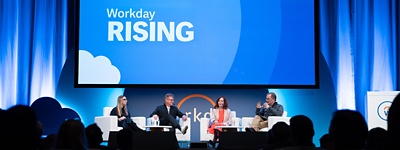Embracing flexibility
How does an organisation become more adaptable? “The shackles have to come off,” says Kerri-Ann O’Neill, people and transformation director at media regulator Ofcom. “That adage, that everyone in our organisation is an adult; let's treat them as such, becomes the most important mindset that I think you need to have as a HR department and a business leader.”
Similarly, Knoess thinks that flexibility is key and it was something Puma was prioritising long before ‘hybrid working’ became a buzzword. Puma had a work-from-home policy in place before the COVID-19 pandemic. Nevertheless, in March 2020 the leadership team had to decide whether they were going to close the office or not. Unlike their neighbours in the German town of Herzogenaurach - the likes of Siemens, Schaeffler and rivals Adidas - they decided to keep their headquarters open. “We said to employees they could, of course, work from home. People could work as much from home as they wished. But we said that the operation would stay open.”
After just three weeks, Knoess says that people started returning of their own accord. “Why? Because all the restaurants, all the coffee shops were closed. And to be honest, we were probably the most social place around. We tried, within the legal framework, to do everything that was possible. And we tried to navigate as much to the new normal as possible, right? So rather than playing too safe, if you want, we said, how can we create a work environment where people actually love to come in?”
奥尼尔承认that she’s no fan of the term ‘hybrid working’. As a research-based organisation, Ofcom is very evidence led and so O’Neill decided to experiment with different working models, with some given complete freedom over where they worked and others told to be in the office for a set number of days.
“我们的大ta showed us that actually, the bits of the organisation that had total flexibility to come in – the ones who invested in why we need to do face-to-face – they were coming in the most. The team forced to do three days, two days, 50/50 – I mean, we had a whole range of things going on – they came in the least, because autonomy was being taken out of the equation.”
Ofcom has since applied what it learned from that experiment. “We now have an approach that says we believe in face-to-face working, we believe in connection. But we're not going to set a rule around that, and that's really working for us. We're seeing people like that and are coming back more and more.”







